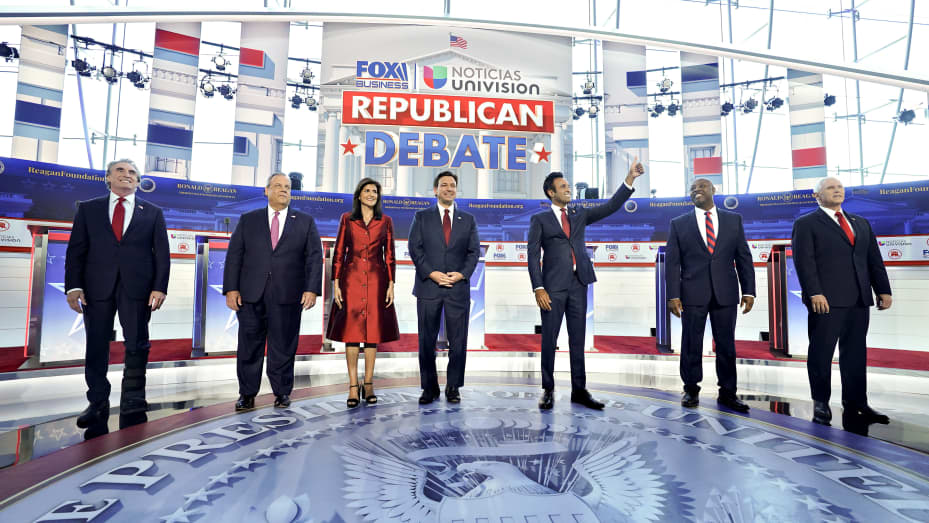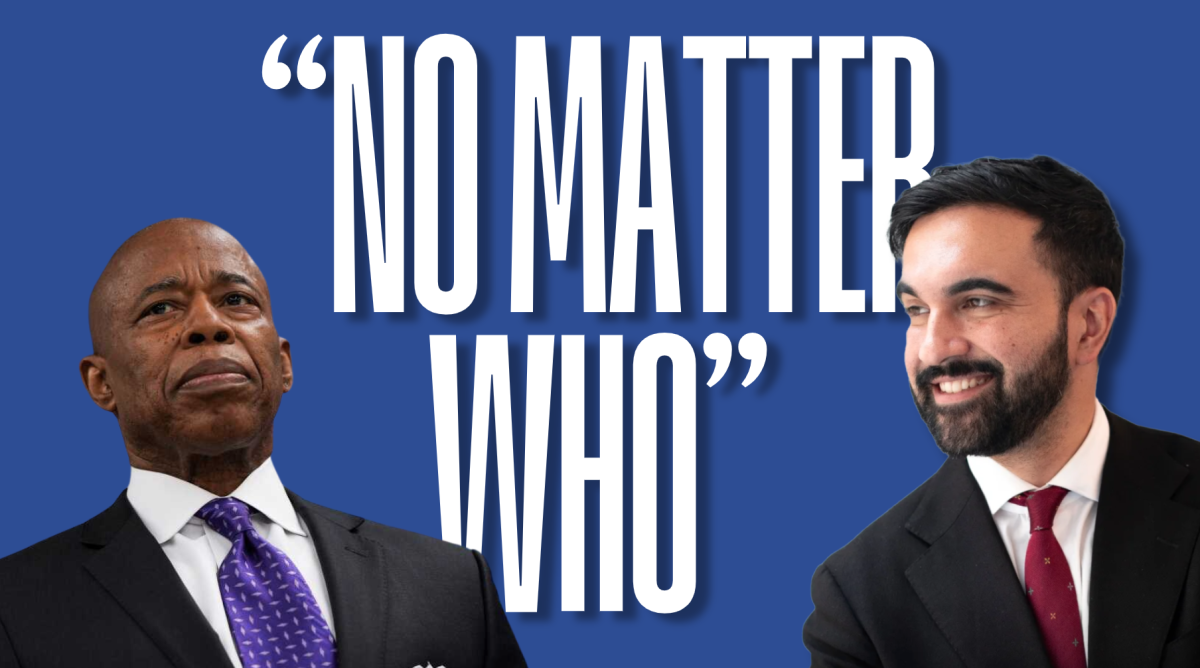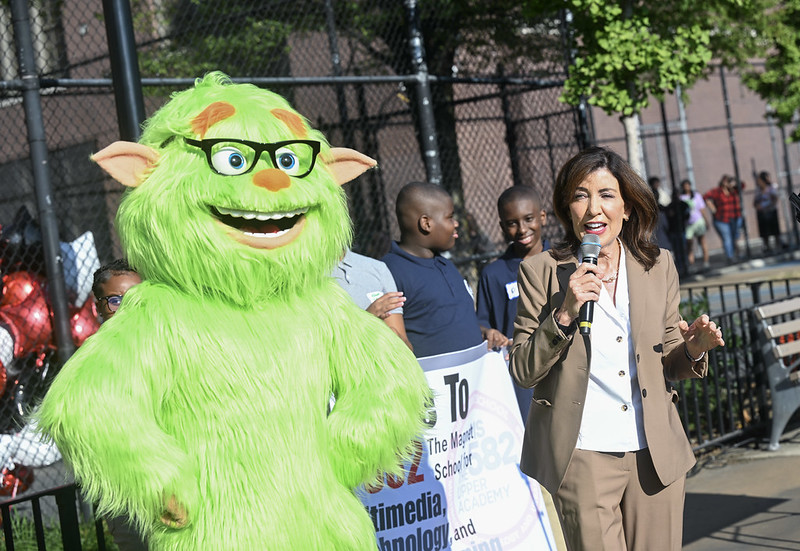If you’re a political news junkie like me, and you’ve been following the Republican presidential primary, you might come to the conclusion that the race to be the Republican nominee in 2024 is tight. Certainly, the way it’s being portrayed in the media — with a focus on the individual gains and losses of each candidate — you might think it’s still anyone’s game. Until you look at the polls, that is, and see that former President Donald Trump is in a dominant lead with 55% of the Republican vote. Florida Governor Ron DeSantis is in second, with 13% (more than 40 points behind Trump), and none of the other candidates have even reached double digits.
At this point, even if all the other candidates coalesced their support behind one person (assuming none of their voters went over to Trump), they would still be behind Trump. And as I watched the second Republican debate this past Wednesday, I was forced to wonder: is this all a waste of our time?
A lot can happen in a year. But Trump has been indicted. He’s incited an insurrection. He’s made so many controversial statements that they barely make headlines anymore. It’s hard to imagine him doing anything that could possibly lose him support. And over the past year of campaigning, no Republican contender has made significant headway into damaging Trump’s lead. Earlier this year, DeSantis seemed to stand a chance, coming within two points of Trump — but his support has only decreased as the year went on, and he remained a distant second. After two debates, no candidate has seemed to gain any significant momentum, meaning that Trump is an almost sure bet for the 2024 presidential nomination.
Yet despite all of that, both the Republicans on the debate stage Wednesday night and the media at large have tried to paint a picture of a race that’s still anybody’s game. Most of the candidates don’t seem willing to talk about “the elephant not in the room.” While Trump has drawn some criticism on the debate stage, it’s not nearly as much as would be expected for a frontrunner with such a large lead. And since Trump seems to take running against him as a personal affront, it’s highly unlikely that any of these people will end up as vice president.
Over the past few years, with the rise of the 24-hour news cycle, the lines between politics and entertainment have become increasingly blurred. Sometimes, I find myself wondering why I’m reading or watching the news that I do: is it to become an informed voter and active political participant? Or is it just for the horror, shock and amusement of the spectacle of it all?
The Republican debate this past Wednesday had plenty of the latter. From corny name-calling (“Donald Duck”) to fierce insults (“Everytime I hear you, I feel a little dumber”), the debate’s most memorable moments were never the concrete policy recommendations the candidates put forward, but instead, the catty things that were said. You could probably count on one hand the number of times the debaters actually answered the question put forth to them by the moderator. Usually, they just went on a tangent about something else they wanted to talk about anyway (not unlike when you’re given a question on a test to which you don’t know the answer, and you answer about something completely different, hoping the professor won’t notice). All the pageantry culminated in a ridiculous finale, where the moderators quite literally used the phrase “vote someone off the island” in asking what candidate the group as a whole thought should drop out of the race.
This isn’t politics. This isn’t news. This is entertainment for the bored American television watcher, somewhere between a reality TV show and a sporting event. All of these candidates are so far behind Trump, they don’t stand a chance against him — and yet we tune in anyway. For the same reason we watch “Survivor.” For the same reason we watch “Veep.” For the same reason we watch WWE wrestling. It may not be real, but hey, it’s entertaining.
The Republicans on the stage want voters and donors to believe they stand a chance. The media wants people to believe so, too, so they keep tuning in to watch. But as Trump’s lead remains undented in the week following the debate, yet again, that doesn’t seem like the case.
Look, maybe there is some value to all of this. For if Trump were to suddenly be out of the race. For the future of the Republican Party — not in 2024, but 2028 and beyond. To understand the mentality of Republican Party leadership. But in regards to the Republican nomination for president in 2024, we need to stop pretending these debates are anything other than what they are: a circus sideshow.
Michael Sluck, FCRH ’24, is a computer science and political science major from Verona, N.J.










































































































































































































